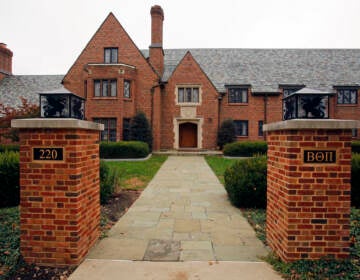Philly legal aid group urging colleges to stop asking applicants about criminal record
Listen
Some area colleges are asking prospective students for their juvenile criminal history. (Bigstock)
Community Legal Services, one of Philadelphia’s largest legal assistance organizations, is pushing area colleges and universities to stop asking prospective students about any crimes in their past.
In a report released Wednesday, lawyers with the nonprofit argue that questions about convictions and adjudications — while a juvenile or adult — strongly discourage applicants, especially students of color, from completing the process for acceptance to a college or university. It’s similar to the way job seekers with criminal records often become disheartened because they know the impact it has on their chances for employment.
“Having this type of deterrent for people — that’s really unnecessary — only further makes our four-year colleges and institutions inaccessible, less diverse, less representative of the communities in which they’re situated,” said CLS staff attorney Jamie Gullen.
It’s estimated that one in three Pennsylvanians has a criminal record.
With a pair of felony drug convictions, David Tomlinson is among them. That record didn’t stop him from earning a linguistics degree at Temple University, but it made him anxious to be asked about a criminal past. He felt trapped no matter what he wrote.
“If I answer yes, my opportunity fades to black. Immediately. And if I answer no. and they find out, then again, my life ends,” said Tomlinson, who is now pursuing a master’s degree in order to teach.
“Opening Doors” encourages schools to remove criminal history questions from their applications or stop using the current version of the Common Application, a standardized form used by hundreds of colleges and universities across the country.
CLS hopes the report may also prompt schools to put pressure on The Common Application organization, a nonprofit, to remove questions about criminal history.
In a statement, Jenny Rickard, president and CEO of The Common Application, pointed out that its members could choose “not to receive student responses to the criminal and disciplinary history questions.”
“That said, a significant majority of member schools have indicated that the criminal history and school discipline questions should remain on the Common Application,” said Richard.
“We appreciate the significance of this issue and will continue to engage our members on this and other application questions on a regular basis.”
The University of Pennsylvania, Haverford College, Bryn Mawr College and Drexel University — schools that exclusively accept the Common Application — did not respond to requests for comment.
This year, the Louisiana Legislature became the first in the country to pass “ban the box” legislation limiting what public colleges and universities can ask students about their criminal history.
No such effort is underway in Pennsylvania’s General Assembly.
“Opening Doors” maintains that asking students criminal history questions may violate their civil rights, but stops short of suggesting a lawsuit as a possible solution.
WHYY is your source for fact-based, in-depth journalism and information. As a nonprofit organization, we rely on financial support from readers like you. Please give today.





